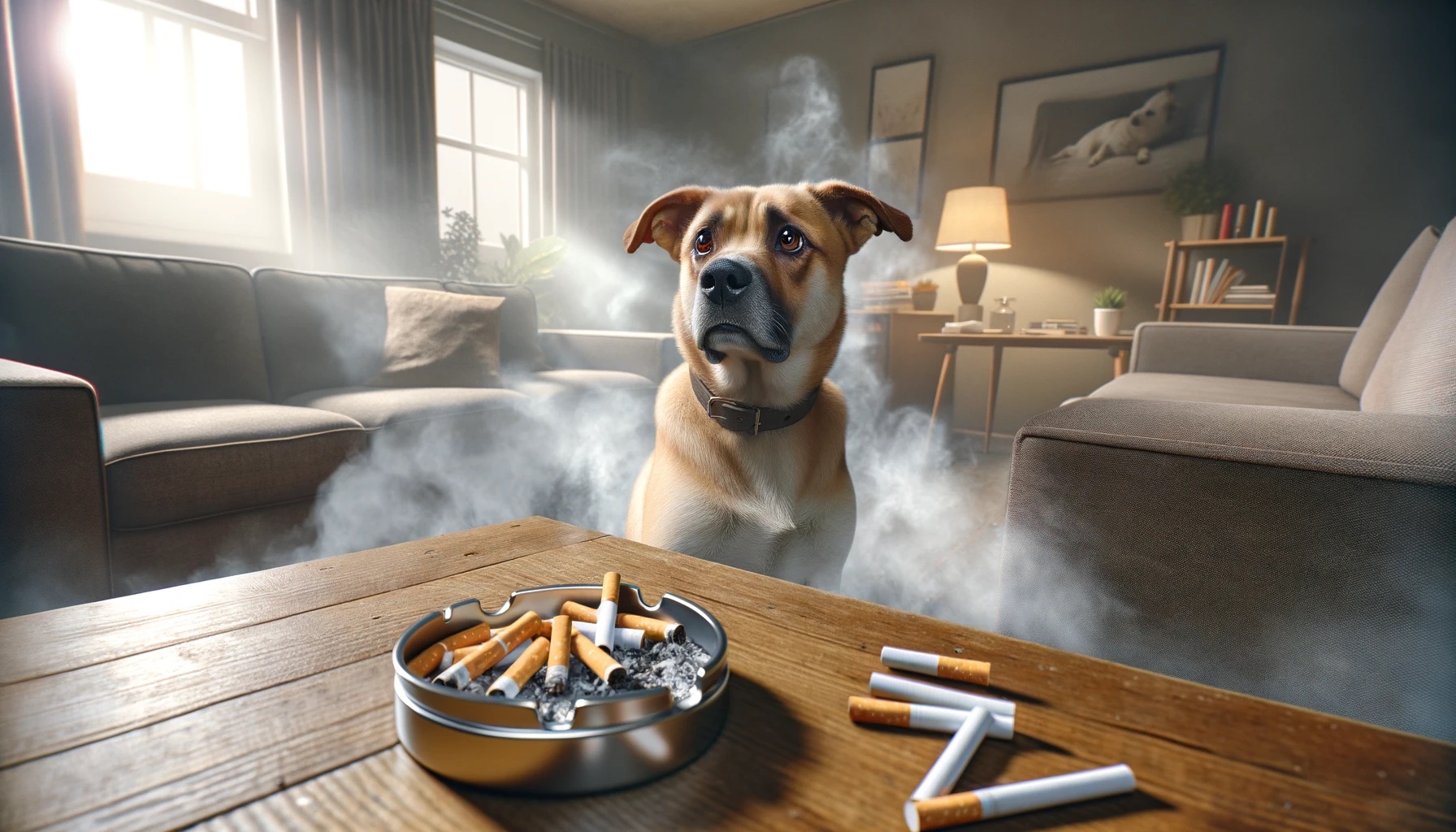
On ‘National No Smoking Day’ (13th March), it’s important to discuss not only the well-documented health risks smoking poses to humans but also the significant, often overlooked dangers it presents to our pets. The risks that cigarettes and vaping chemicals pose to dogs are profound, leading to severe toxicities and, in dire circumstances, death.
Dr. Linda Simon MVB MRCVS, a seasoned veterinarian, offers valuable insights into how second-hand smoke and vaping affect our canine companions. Her expertise sheds light on this critical issue, providing pet owners with compelling reasons to reconsider their smoking habits for the wellbeing of their beloved pets.
Q&A with Dr. Linda Simon, MVB MRCVS, resident vet at ethical dog food brand Pooch & Mutt
- The Harm of Smoking Cigarettes Around Dogs
“Many owners don’t consider the impact of second hand smoking on their pets,” Dr. Simon states. Studies have unequivocally shown that pets exposed to smoke are at a significantly higher risk of developing cancers, including lung and nasal tumours. Besides cancer, second-hand smoke can cause skin and eye irritation, allergies, and even bronchitis in pets. Dr. Simon advises smokers to, at the very least, smoke outside to mitigate these risks.
- Effects of Smoke Odour on Dogs
Dogs have an acute sense of smell, and while they may become accustomed to the smell of smoke, it doesn’t negate the fact that it can cause them irritation due to the presence of tars and chemicals in the air.
- The Safety of Vaping Around Dogs
Current evidence suggests that vaping poses less of a risk than traditional smoking in terms of leading to cancer. However, the vapours from vaping can still irritate dogs, especially those with pre-existing allergies and respiratory conditions. “It is best to try and not vape around your pet,” Dr. Simon recommends.
- Protective Measures for Smoking Pet Owners
Acknowledging the deep bond between pets and their owners, Dr. Simon underscores that pets are unlikely to distance themselves from their owners, even if smoking or vaping. She urges owners to be considerate and avoid smoking or vaping around their pets to prevent exposure to harmful chemicals.
- Real-life Observations of Pets Affected by Smoking
Dr. Simon shares her experiences of treating pets from smoking households, noting the distinctive smell of stale smoke on their skin and fur. She highlights the plight of pets with asthma, which could see marked improvement if not exposed to smoke. These observations often lead to productive discussions on quitting smoking for the pet’s health.
- Increased Risks for Certain Dog Breeds
Specifically, brachycephalic (snub-nosed) breeds, such as Shih Tzus and Pugs, are more susceptible to the adverse effects of second-hand smoke due to their inefficient airways, making them more prone to lung cancer.
Dr. Simon’s insights emphasise the critical message that the health implications of smoking reach beyond humans, affecting our pets as well. This highlights the need for pet owners to embrace smoke-free habits, prioritising the wellbeing of their animals.

